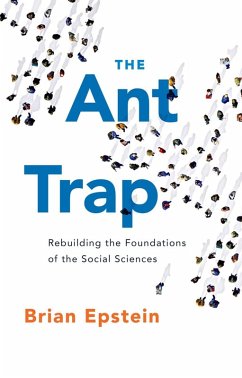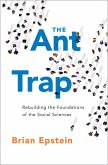We live in a world of crowds and corporations, artworks and artifacts, legislatures and languages, money and markets. These are all
social objects - they are made, at least in part, by people and by communities. But what exactly are these things? How are they made, and what is the role of people in making them? In
The Ant Trap, Brian Epstein rewrites our understanding of the nature of the social world and the foundations of the social sciences. Epstein explains and challenges the three prevailing traditions about how the social world is made. One tradition takes the social world to be built out of people, much as traffic is built out of cars. A second tradition also takes people to be the building blocks of the social world, but focuses on thoughts and attitudes we have toward one another. And a third tradition takes the social world to be a collective projection onto the physical world. Epstein shows that these share critical flaws. Most fundamentally, all three traditions overestimate the role of
people in building the social world: they are overly
anthropocentric. Epstein starts from scratch, bringing the resources of contemporary metaphysics to bear. In the place of traditional theories, he introduces a model based on a new distinction between the
grounds and the
anchors of social facts. Epstein illustrates the model with a study of the nature of law, and shows how to interpret the prevailing traditions about the social world. Then he turns to social groups, and to what it means for a group to take an action or have an intention. Contrary to the overwhelming consensus, these often depend on
more than the actions and intentions of group members.
Dieser Download kann aus rechtlichen Gründen nur mit Rechnungsadresse in A, B, BG, CY, CZ, D, DK, EW, E, FIN, F, GR, HR, H, IRL, I, LT, L, LR, M, NL, PL, P, R, S, SLO, SK ausgeliefert werden.









